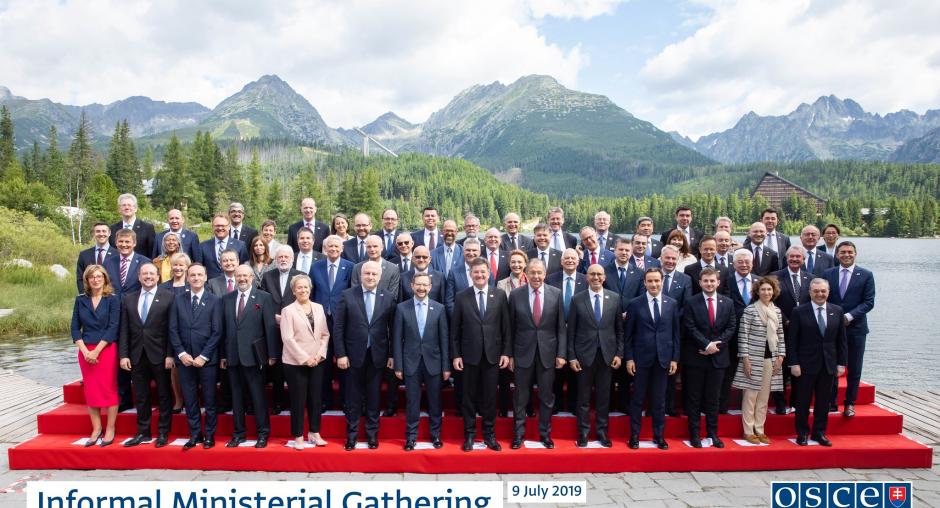Ministers and officials gather in High Tatras for informal dialogue on OSCE’s role as a multilateral, conflict prevention tool

High Tatras, Slovakia, 9 July 2019 - OSCE Chairperson-in-Office, Minister of Foreign and European Affairs of the Slovak Republic Miroslav Lajčák, successfully wrapped up the Informal Ministerial Gathering today. The informal meeting organized by the Slovak Chairmanship aimed at bringing together decision-makers in a relaxed, informal setting to discuss issues of relevance to the OSCE in a way that is conducive to real dialogue and exchange.
Opening the meeting in Slovakia’s High Tatras mountains this morning, Chairperson Lajčák underscored the need for real dialogue: “That is why we are here today: to talk to each other; to reflect; to exchange ideas. And, we need to look beyond that – to the longer-term future of the OSCE.”
The Gathering, which convened 23 foreign ministers, 11 state secretaries and almost 300 delegates from across the OSCE region, placed a strong focus on the past lessons, current practices and future potential of the Organization in the area of conflict prevention. “The OSCE has one of the strongest prevention toolboxes out there,” Lajčák stressed. “However, here is the truth, plain and simple, we are not using it correctly.
This message was reaffirmed by many participants of the discussions, who pointed to various mechanisms and capacities of the OSCE in this area, including its conflict cycle toolbox, field operations and institutions. In doing so, they emphasized that there is no need to create new mechanisms, but that more must be done to recommit to the Organization and to generate the political will to make better of use the OSCE’s existing toolbox.
Participants of the Informal Gathering also discussed the role of the OSCE within a changing multilateral landscape. They explored prevailing megatrends – from the erosion of global arms control to cyber, hybrid and environmental threats – and exchanged ideas on the various ways the OSCE can evolve and adapt, including through co-operation with the United Nations and various regional organizations. This discussion was shaped by the perspectives of top OSCE officials, including the Secretary-General, the High Commissioner on National Minorities, the Representative on Freedom of the Media and the Director of the Office for Democratic Institutions and Human Rights (ODIHR), as well as the President of the OSCE Parliamentary Assembly.
The Informal Ministerial Gathering, which took place under the Chatham House Rule to encourage interactive dialogue, ended with a call to action from the Chairperson-in-Office. “I believe we need a very clear recommitment to our principles and commitments,” Lajčák said. “Not just through the speeches delivered by our ambassadors in Vienna, but from the highest level – and with one voice.”
